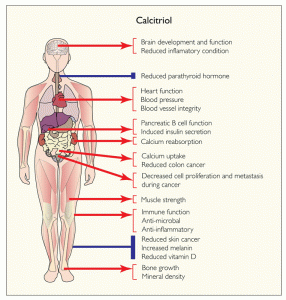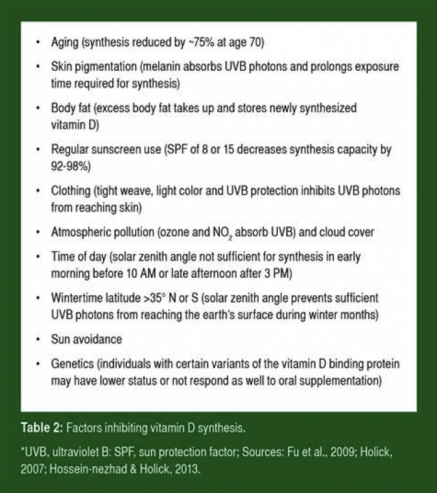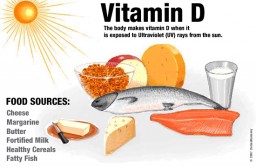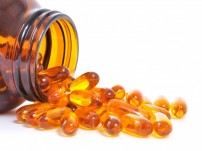Stress What’s That!?
September 29, 2015
A Quick Guide to Managing Stress in College
Everyone has stress, whether its good stress or bad stress, your body takes a toll. Your body does not know the difference so learning to manage stress is important. College is a time of life changes and environmental differences, which means there is a high level of stress. Stress can be anything from a big test, to going on a date! Before I go into the different ways to manage your stress, lets name some of the top general topics that cause high stress.
- Money
- Work
- Health
- Family
- School
Everyone has been stressed about one thing or another on that small list. College is a time where all of those things attack you. School is expensive, you are away from you family, college is hard work, and have you ever heard of the freshman 15? Learning how to manage these things in your life can help you from getting sick, and causing more pain than your body really needs.
Many people don’t think they can manage stress. Things just keep pilling up and it never seems to stop. However, you have full control of what goes on in your life and how to handle every situation. Every person has a different personality and body; there is more than one way to deal with stress. However, if nothing is done about it then a certain stress management strategy is probably necessary. It is important to learn different remedies and find a fit that is best for you. Before you can find the best way to cope with stress, you need to understand where your stress is coming from and why you are getting stressed. So before you decide to manage your stress ask yourself these questions
- Is the stress temporary? (I just have a lot of stuff going on right now)
- What is my main source of stress? (family, school)
- Do you blame yourself or others for your stress?
Okay now once you have these questions answered you can figure out the best way to deal with your stress. You can take some simple everyday remedies, or if you think you need more, follow some of the more step-by-step tasks.

REMEMBER TO BREATHE
FIRST I want you to take three deep breaths (Yes right now, even if you’re not stressed). Don’t you feel better already? You may think this sounds dumb, but people often forget to breath in stressful situations. Deep breathing is scientifically proven to affect the heart, brain, digestion and the immune system. When we get really stressed, or mad there is a phrase termed ‘my blood is boiling’. Well your blood is not actually boiling, but you blood pressure increases and the pH is rising. Doing these deep breathing exercise can actually have the ability to alter these factors. So next time you need a study break, stop and do some yoga, or before you call your mom back after she left you a long voice mail, practice some breathing techniques.
If you are interested in specifically breathing techniques, check out these websites!
- http://healthland.time.com/2012/10/08/6-breathing-exercises-to-relax-in-10-minutes-or-less/
- http://www.webmd.com/balance/stress-management/tc/stress-management-breathing-exercises-topic-overview
PEP TALKS
Now that you are done breathing, lets give our selves a POSITIVE SELF PEP TALK. Yes, you read that right. Tell yourself how awesome you are and how great you are doing. Everyone needs positive reinforcement in his or her life, and what individual knows you better than you! When ever you are at your desk, or in your car tell yourself “you can do it” or “things could be worse.” I challenge you to give yourself one encouraging word or phrase a day. Here are some examples to help you:
- “I’ve got this”
- “This is going to be easy”
- “I can handle this”
- “I can always ask for help”
- “I will look back at this and laugh”
- “I will get through this”
GET UP AND MOVE
Another everyday task people forget about is movement and exercise. Having daily activity can be a huge stress reliever. Exercise releases endorphins and helps your body to feel good. You don’t have to be a heavy weight lifter to make this happen; any movement will help keep your mind off your worries. Taking as little as 10 minutes to get your heart rate up can help you step away from your worries and sweat out some stress. A regular workout routine can be very beneficial but doing little things like walking your dog, using the stairs, or even putting on some music and dancing is beneficial. The longer you sit around the longer your stress will sit on you.
WRITE IT DOWN!
If you love to write and journal, then this technique may be suitable for you. Not only writing down your feelings, and situations that are stressful can help, but also going back and preventing them from happening again is even better. Keeping a stress journal can help you find the regular stress influences in your life. In this journal keep track of:
- What caused your stress
- Where you were
- How you felt both mentally and physically
- What your reaction was
- How you relieved the stress
After the stress is relieved, you can go back and look at the different entries and analyze what was the same or different. Here you can figure out what small changes need to be done in everyday life to keep the stress from coming back. You may not have noticed the pattern before so this can keep you organized and accountable. Looking back at these situations you can decide what was unnecessary stress you need to take care of in your life, or how your reaction may affect others. Some situations may not be things you can change, but this can be an opportunity to accept that. We can’t change that the sky is blue, and if I am always worrying about why the sky is blue and not purple what is the point? I can accept the things I cant change and move on from it.
Again these are only some of the way to deal with stress, but they are easy to forget. Here are some other quick options for relieving stress:
- Smile and laugh
- Seek out friends
- Eat healthier
- Avoid drugs and alcohol
- Time manage
- Pick up a hobby
- Stay positive
- See a counselor

There are different ways individuals cope with stress, but don’t let it get the best of you. When in doubt stop breathe and talk yourself through it. Always remember it could be worse and there is always someone rooting for you.
For more information:
- http://cmhc.utexas.edu/stress.html
- http://healthfinder.gov/HealthTopics/Category/health-conditions-and-diseases/heart-health/manage-stress
- https://www.nlm.nih.gov/medlineplus/ency/article/001942.htm
- http://www.cdc.gov/features/handlingstress/
- http://www.apa.org/helpcenter/manage-stress.aspx
For counseling services contact:
Director: Keith Mangus
Butler University Counseling Servies
HRC, Room 120
530 W. 49th St.
Indianapolis, IN 46208
(317) 940-9385
http://legacy.butler.edu/counseling-services/
References:
Thompson, Dennis. CBS News. The Biggest Cause of Stress in America Today. 2015. Web. Sept. 2015. Retrieved from: http://www.cbsnews.com/news/the-biggest-cause-of-stress-in-america-today/
Robinson, L. Smith, M. Segal R.Help Guide. Stress Mangement: How to Reduce, Prevent, and Cope with Stress. Web. Sept. 2015. Retrieved from: http://www.helpguide.org/articles/stress/stress-management.htm
Cuda, G. NPR Books. Just Breathe: Body Has a Built-In Stress Reliever. 2010. Web. Sept. 2015. Retrieved from: http://www.npr.org/2010/12/06/131734718/just-breathe-body-has-a-built-in-stress-reliever
American Heart Association. Four Ways to Deal with Stress. 2014. Web. Sept. 2015. Retrieved from: http://www.heart.org/HEARTORG/GettingHealthy/StressManagement/FourWaystoDealWithStress/Four-Ways-to-Deal-with-Stress_UCM_307996_Article.jsp
American Psychological Association. Five Tips to Help Manage Stress. Web. Sept. 2015. http://www.apa.org/helpcenter/manage-stress.aspx
Center for Disease Control and Prevention. Manging Stress. 2012. Web. Sept. 2015. Retrieved from: http://www.cdc.gov/features/handlingstress/
Media Sources:
https://worldofblackheroes.files.wordpress.com/2011/03/you_rock.gif
http://ctworkingmoms.com/wp-content/uploads/2014/03/breathe.jpg
http://www.michaelomidi.com/wp-content/uploads/2013/07/Exercise-and-Anxiety.png
http://cpxicom.c.presscdn.com/wp-content/uploads/2014/05/no-stress.jpg
http://roughcityathletics.com/2015/03/17/stress-adaptation-cycle/
https://www.youtube.com/watch?v=0fL-pn80s
Can Stress actually Kill you?
September 29, 2015
What is stress?
In our world as college students “stressed” has become a way of life. “How are you today?” “So stressed…” But what does it actually mean and why are we defying the definition? The definition that we overuse and let consume our lives today was coined back in 1936 by a Hungarian endocrinologist Hans Seyle. He deemed that stress is the body’s physical or mental response to a demand or change. A stressor can be anything that is a psychological, physical or social stimulus. Whether that stressor be an illness, studying for an exam or a bad breakup the body reacts the same way; stress is the same whether it be good, bad, chronic or acute.
Taking a toll on the Body
“Every stress leaves an indelible scar, and the organism pays for its survival after a stressful situation by becoming a little older.” – Hans Selye
The effect that stress has on the body can be summed up into three separate stages known as the General Adaptive Syndrome and displays how the human body can infinitely and progressively react to change or stimuli. The three separate stages include alarm phase, resistance phase and the exhaustion phase.
The alarm stage is also known as fight or flight response, because during this stage the nervous system recognizes threat or danger and begins to build up a defense against the stimulus. Physiologically this triggers the hypothalamus that initially prompts the adrenal glands to produce more epinephrine. However, in the long term the glands release cortisol. During the resistance phase, the parasympathetic nervous system is working to return the body to homeostasis. When chronic stress occurs and the body cant reach homeostasis, this is when it begins the phase of exhaustion and the body takes a hit. Because the body has been producing so much excess energy to fight the attacking stressor you reach a point of physical and psychological exhaustion. The immune system changes, cortisol productions rise and soon every organ in the body is susceptible to harm.

“Anything that causes stress endangers life, unless it is met by adequate adaptive responses; conversely, anything that endangers life causes stress and adaptive responses. Adaptability and resistance to stress are fundamental prerequisites for life, and every vital organ and function participates in them.” –Hans Seyle
- Muscle tension can be a reflex when the body feels stress. Long term muscle tension can lead to chronic pain, tension and migraine headaches, muscle atrophy and musculoskeletal conditions.
- Hyperventilation (panic attacks) can sometimes occur because stress makes you breather harder and pushes more rapid breathing.
- The organ typically most commonly affected by stress is the heart. Acute stress can cause an increase in heart rate and blood pressure (fight or flight). However chronically this can have serious risks. A combination of high blood pressure, increase heart rate and production of cortisol can lead to risk cardiovascular disease, stroke and heart attack.
- Too much cortisol increases glucose production. This can be especially harmful to individuals with diabetes, high blood pressure or obesity.
- The gastrointestinal system changes significantly. It can range from lack of nutrients due to unhealthy eating habits, vomiting and/or diarrhea or severe stomach pain which could lead to ulcers.
Why should YOU care?

What affects college-aged students most commonly is the effect on intellectual performance and emotional stability. According to the Anxiety and Depression Association of America, forty million U.S. adults suffer from an anxiety disorder, and 75 percent of them experience their first episode of anxiety by age 22. Stress levels are skyrocketing on college campuses because students are going to drastic measures to “get the A.” Lack of sleep mixed in with increased stress hormones in the body has been shown the cause a direct link to lack of memory and concentration. So in theory, pulling that all nighter for the big exam sounds great but you are more likely to wreak havoc on your nervous system.
If you’re feeling overwhelmed, it’s okay to seek help before your body takes a hit!
Butler University Counseling Services
530 W. 49th Street (HRC, Room 120)
Indianapolis, IN 46208
Phone: (317) 940-9385
Common reasons students utilize the services:
- Relationship issues
- Understanding one’s sexual/gender identity
- Depression
- Eating and body image concerns
- Anxiety
- Self-esteem/self-confidence
- Adjusting to college
- Anger management
- Stress management/coping skills
- Self-care
- Grief and loss
- Alcohol and substance use
- Homesickness
- Sexual assault/trauma
References:
“Living and Thriving-Stress and College Students.” Facts | Anxiety and Depression Association of America. ADAA, n.d. Web. 29 Sept. 2015.
Lucille, Holly. “General Adaptation Syndrome (GAS) Stages.” General Adaptation Syndrome (GAS) Stages. Integrative Therapeutics, LLC, 10 Apr. 2014. Web. 29 Sept. 2015.
Rosch, Paul J. “Hans Selye: Birth of Stress.” The American Institute of Stress. N.p., n.d. Web. 29 Sept. 2015.
Seyle, Hans. “STRESS AND THE GENERAL ADAPTATION SYNDROME.”British Medical Journal (1950): n. pag. Print.
“Stress Effects on the Body.” American Psychological Association, n.d. Web. 29 Sept. 2015.
Wu, Joanne. “Rising Stress Levels Alarm Health Educators.” The American Institute of Stress. Stanford Daily News, 29 Feb. 00. Web. 29 Sept. 2015.
Media sources:
https://www.youtube.com/watch?
v=vzrjEP5MOT4http://data.integrativepro.com/images/general-adaptation-syndrome.jpg
http://www.studlife.com/files/2012/04/depression.jpg
http://www.studlife.com/files/2012/04/depression.jpg
The Importance of Vitamin D for Athletes
September 24, 2015
Undoubtedly you have been told to “go outside and get some vitamin D” at some point in your life. The “Sun vitamin” is the only nutrient that we can get from the environment and not just from our diet. As college athletes, we understand the importance of properly fueling our bodies and receiving vitamins our body needs to function best. But do you receive enough Vitamin D? Do you know what vitamin D does? Do you know its affect on athletic performance? If you answered “no” to any of these questions, you’re in the right place. Keep reading to discover the importance of vitamin D!
WHAT IS VITAMIN D?
Greek Olympians were encouraged to train under the sunrays due to its benefits to physical health described by the physician Antyllus. Even then, the benefits of sunshine were apparent on the performance of athletes. Today, we know this is the work of vitamin D. Although vitamin D is considered a “vitamin”-an organic compound in food needed in small amounts for growth and good health-our requirement can be met entirely through synthesis in the skin with sun exposure. Ultraviolet radiation in sunlight converts a precursor located in the skin to vitamin D. From here the new vitamin is sent to the liver where it is converted in to the main storage form. When needed, vitamin D is converted to a hormonal form and driven by parathyroid hormones to work.
VITAMIN D SOURCES
As mentioned earlier, vitamin D can be synthesized upon sun exposure. However, anything that limits amount or quality of sun exposure can compromise vitamin D status. Athletes who live at higher longitudes far form the equator, wear clothing that covers most skin, have darker skin, or have excess body fat will likely not be able to receive their vitamin D requirements via sunlight. The chart below further explains how vitamin D can be limited from the sun
If this is you, don’t panic! The good news is some vitamin D can be obtained through your diet. Fatty fish (salmon, mackerel, sardines, tuna), mushrooms, yogurt, soy milk, fruit juice, and egg yolks all contain high levels of vitamin D. Work these foods into your diet to replenish you vitamin D stores. Vitamin D can also be supplemented.
HOW MUCH VITAMIN D SHOULD YOU GET?
The US Institute of Medicine Guidelines suggests that people receive 40 nmol/L of vitamin D a day. However, this suggestion continues to rise as many experts believe that 100-250 nmol/L is optimal for human health. Sub-optimal vitamin D is widespread among the general population and athletes. It’s prevalence among athletes varies by season, training locating, sport, and skin color among other factors. Generally, your vitamin D levels are lower during the winter months due to the change in angle of the sun, covering of the skin, and increase in time spent indoors.
At this point, you understand that you may be lacking in vitamin D. But why does this matter? What does vitamin D do for the body and how does it help athletes?
FUNCTIONS OF VITAMIN D
Vitamin D is a genetic modulator to as many as 2,000 genes involved in cellular growth, immune function and protein synthesis. It turns on and off the expression of specific genes to control functions in the body including bone health, skeletal muscle function, and immunity and inflammation.

Bone Health: Vitamin D turns on genes that enhance calcium absorption and bone turnover. It is also associated with positive bone mineral density in the hip and lumbar spine of women throughout their life.
Importance for Athletes: Vitamin D is essential for bone health and prevention of bone injury in athletes. Stronger bones mean reduced risk of stress fracture. Athletes who were below 75nmol/L of vitamin D had a risk for stress fractures that was 3.6 times higher than those above this threshold.
Skeletal Muscle Function: Vitamin D turns on the expression of genes that influence muscle growth and differentiation, particularly in fast twitch muscles. It also modulates sarcoplasmic uptake and cell signaling.
Importance for Athletes: muscular pain and weakness are symptoms of vitamin D deficiency. Deficiency induced atrophy of fast twitch muscles, impairs sarcoplasmic calcium uptake, and prolongs the time it takes for muscles to contract and relax.
Immunity and Inflammation: Vitamin D turns on genes in the immune system that help our bodies defend against bacteria, fungi, and viruses. It also increases the production of anti-inflammatory agents in the body.
Because Vitamin D strengthens the immune system, it also helps to prevent cancer. Here is a look at how vitamin D works within the body to do this:
Importance for Athletes: A better immune system means a lower risk of the common cold and influenza. No one can preform at their best when they are sick. The intense training of athletes can lower the ability of the immune system, but vitamin D can help to build back its strength. Finally, anti-inflammatory agents aid with recovery.
FINAL THOUGHTS
Now you know the powers of vitamin D, how it can affect your ability to perform, and how to get it. In order to be the best athlete you can be, your body needs to be in the best condition it can possibly be. A well-rounded diet and lifestyle that includes vitamin D will set you on the track for success!
MAIN POINTS
- Vitamin D may be attained by sensible sun exposure (5-30 min) to arms, legs, and back close to noon several times a week.
- Athletes who cannot obtain sufficient vitamin D from their diet alone should consider supplementing.
- Vitamin D can aid in proper contraction of muscles, prevention of bone injuries like stress fractures, keeping the immune system healthy, and boosting the body’s anti-inflammatory capabilities.
HOW TO GET MORE INFORMATION:
If you are interested in learning more about vitamin D, how to get the proper dosage, and how it can affect your body for the better, contact Butler’s Consultant Dietician Brooke Pearson.
Brooke Pearson
Office: 317-940-6108
Cell: 317-650-8877
bpearso1@butler.edu
There is also a “Vitamin D Calculator” app that allows users to estimate intake of vitamin D and calcium from their food, vitamins, and sun exposure.
REFERENCES:
MEDIA SOURCES:
https://www.mvppt.com/many-older-women-dont-need-vitamin-d-supplements/
http://www.popsugar.com/fitness/Why-Vitamin-D-May-Improve-Athletic-Performance-35004737
https://liveto110.com/103-rethinking-vitamin-d-toxicity-with-morley-robbins/
https://www.youtube.com/watch?v=MtUgi9wZGXU
Remember to add a new POST (not page) :-)
September 2, 2015
Home Page: Give Blog a Strong Title
September 2, 2015
The first paragraph of your blog should include what the overall concept includes, why it’s important (include references), who could use this blog and how.
Please include photos with your posts, as well as any pertinent video clips that you might find on the web. Remember, unless you took the photo or video, you need to have a proper reference to it.
(Subheading) What are you doing here:
Please attempt to give us real, useful, and pertinent information for college students about your topic. This is our audience. We hope to help BU students be healthier.
(YouTube.com)
(Subheading) Why are you doing this:
The purpose of your blog is to provide valid information on your predetermined content for our class OR people whom you specifically state as the recipients of the information.
References should go at the end of your blog in proper format.
References:
Fox TV. Staying Healthy at College. Accessed on YouTube.com. Date accessed: 9/2/2015. url: https://youtu.be/cKyiZDhNI3








